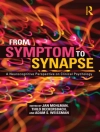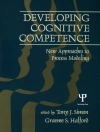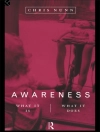The Handbook of Developmental Science, Behavior, and
Genetics brings together the cutting-edge theory, research and
methodology that contribute to our current scientific understanding
of the role of genetics in the developmental system.
* Commemorates the historically important
contributions made by Gilbert Gottlieb in comparative psychology
and developmental science
* Includes an international group of contributors who
are among the most respected behavioral and biological scientists
working today
* Examines the scientific basis for rejecting the
reductionism and counterfactual approach to understanding the links
between genes, behavior, and development
* Documents the current status of comparative psychology
and developmental science and provides the foundation for future
scientific progress in the field
Об авторе
Kathryn E. Hood is an associate professor of human
development at Pennsylvania State University. Her 30 years of
active research includes the study of selective breeding in mice.
She also analyzes interviews from children in the archival Carolina
Longitudinal Study.
Carolyn Tucker Halpern is an associate professor in the
Department of Maternal and Child Health at the University of North
Carolina at Chapel Hill. Her research focuses on biopsychosocial
models of adolescent health and development, and the implications
of adolescent experiences for young adult well-being.
Gary Greenberg is Professor Emeritus of Psychology at
Wichita State University and Adjunct Professor of Psychology at the
University of Illinois — Chicago. He is a comparative psychologist,
co-founder of the International Society for Comparative Psychology,
and Historian/Archivist of APA’s Division (6) of Behavioral
Neuroscience and Comparative Psychology.
Richard M. Lerner is the Bergstrom Chair in Applied
Developmental Science within the Eliot-Pearson Department of Child
Development and the Director of the Institute for Applied Youth
Development, at Tufts University. Lerner is known for his theory of
relations between life-span human development and social change,
and for his research about the relations between adolescents and
their peers, families, schools, and communities.












